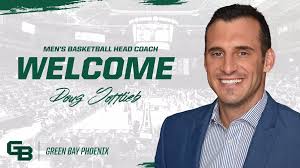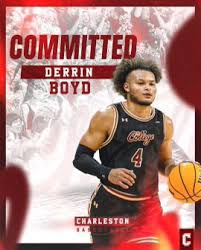We are still a couple of months away from the tip-off of a new college basketball season, which means that we have plenty of time to start preparing for the action ahead. We will do so via a series of season previews featuring the best players/coaches in the country. HoopsHD’s Jon Teitel continues our coverage with new Green Bay coach Doug Gottlieb, who talked about being a great PG and his expectations for this season.

You played for Hall of Fame coach Eddie Sutton at Oklahoma State: what made him such a great coach, and what was the most important thing that you ever learned from him? While his process might not be 1 that I would always use today, the result is that we had really good players who played very hard and respected him. There are no magic plays: you must get good players to play at their peak every day with competitiveness/toughness. We would each meet with Coach before the season and he would tell you what your role was, and if you did not want to accept it then you could go play somewhere else.
You led the NCAA in AST in back-to-back years and your 947 career AST remains top-15 in NCAA history: what is the secret to being a great PG? Not every PG is the same: some are scorers, some are great athletes, and some (like me) will do whatever it takes to make the team better. I think you need to know everything on both offense/defense: what we want to do and how we want to do it. The next challenge is that you cannot just be a robot so you have to do your own thing while feeling 1-2 plays ahead. Your brain can never be off, which is why most elite coaches are former PGs (Bill Self, Billy Donovan, etc.). You need to get everyone involved: who is the shooter, who is the driver, etc. There are lots of guys who can handle the ball but there are very few PGs in college basketball right now.
You played pro basketball in the US/overseas: what is the biggest difference between basketball in the US vs. basketball in other countries? There is a creativity to how they play abroad: they have taken what we have taught here and put a bit of soccer mentality on it. In the US we are very linear, such as setting a ball screen at the top of the key. In other countries they will do the same ball screen but at the perfect angle with perfect timing that ends up with a matchup you do not like. So many foreign players have excelled regardless of their athleticism. When I played in Russia/France/Israel we practiced twice per day, and I will use that logic with my current group. We are not playing pickup ball…but you can learn more playing 5-on-5 so you understand how to work together. I have 13 new guys and you can overcome a lack of athleticism with some sleight of hand so I think it will be better for our conditioning/skill-building. If you can go 75 minutes in the morning and 75 minutes at night then I think you can accomplish more than doing it all in 1 sitting.
You were MVP for Team USA at the 2001 Maccabiah Games and coached Team USA at the 2017 Maccabiah Games: what did it mean to you to win a gold medal as both a player/coach? I also won it in 2022 as a coach. Winning as a player is super-fun: I played for Larry Brown’s brother Herb in 2001 after losing in 1997. I was on the Lakers’ summer league team but left to go play in Israel because it was that important to me. As a coach I love building a team/family and seeing if you can get all of them to buy in and fight for each other. Some of my teammates became my closest friends and were even in my wedding. I try to coach people the way I wanted to be coached because kids will respond better to it. Last time I became a convert to 5-out basketball and learned a lot about how to overcome the weakness of playing small. I like FIBA rules and situational basketball and enjoyed coaching more than playing because you are responsible for 12 little brothers as they learn to become a team.
Your father Bob was an assistant to Sutton at Creighton and later was a head coach at Jacksonville/Milwaukee, while your brother Gregg is an assistant for the San Diego State women’s basketball team: how much of an impact were either of them on your own decision to become a coach? Huge: basketball is our family business. When you are a coach’s son it becomes who you are. I am not trying to win battles that my dad lost and am incredibly respectful of my brother’s hard work. I take the honor/commitment that Green Bay made very seriously and will try to live up to it. When we went on “vacations” as kids we would go to the Final 4 or to Newark to play pickup ball.
What kind of relationship will you have with the media after spending the past 2 decades as a college basketball writer/TV analyst/radio host? Friendly/respectful/open/honest/etc. I never understood coaches who were defensive about the media because I am not. It is reasonable to think that a guy who has never coached in college may not be able to do so, but the best of the best will do their job by attending practices and understanding what the job entails. Same with the officials: I carry no baggage. I am close friends with the play-by-play guys I work with like Spero Dedes/Boog Sciambi/etc. I am not taking it for granted or trying to get a pass: do your job and I will do mine. The last thing is to be positive: this is a dream scenario for me and I am in it for the right reasons so I will be an open book and tell the truth.
Your regular season opener will be against your alma mater: how do you feel about heading to Stillwater on November 4th? I think it is awesome! We have 1 kid who transferred in from OSU and another who signed with them before decommitting. It is a lot emotionally for a kid but my daughter goes to school there and my son’s high school is about 30 minutes away. I would much rather compete against Coach Steve Lutz’s 1st team than his 3rd/4th team. I love that place and want them to do well so the only logic behind that game is to show our kids what big-time college basketball is about. If they can see that early on then it will help them make the transition to playing hard.
In addition to 5 players from Wisconsin your roster contains players from 7 other states and 3 foreign countries: what sort of recruiting philosophy do you have? When I took the job I told people that I had an army. We turned down about 25 kids so that we could get the right kids and leaned into our strengths. I have strong ties in Israel due to playing/coaching there. We love Ben Tweedy from Australia and we will continue to add from there: he is only 18 but everyone has a tremendous amount of respect for all the Aussies who are at St. Mary’s. 1 of my dad’s closest allies runs the NBA Academy in Senegal and all the guys we took are from our staff connections. You get good in-state kids, use your connections for out-of-state kids, and then build the trust. We want to make them better and become part of what we do: it was not about getting a specific # of players from a specific area. I will not accept that we will not be able to get some kids because we are in Green Bay. Players want coaches they can relate to and a place where people give a s—: this is Titletown and they want us to win. I got the job in May and wanted to get guys who want to play our way as part of a bigger family who want to be at Green Bay. If you act like you are too good for us then we do not really have a good use for you: we want tough kids who are better than their ranking and have something to prove. Our most decorated player is Anthony Roy: he can score and is tough and I will be surprised if he does not make an all-conference team. I think our best all-around player is Marcus Hall: he has a crazy-high basketball IQ. Preston Ruedinger is our unquestioned leader: he literally does everything you want a kid to do. Foster Wonders is an elite shooter so we will try to get him about 10 3PM this year. Jeremiah Johnson was a top-150 recruit and is a coachable/likable team guy with a tremendous future ahead of him.
You only have 3 seniors/2 juniors on your roster: do you think you have enough veteran leadership to succeed this season? Yes: it will be challenging because we are very inexperienced but there is some upside that is high. I have a lot to learn and will make mistakes but real leadership comes when it is 20-below outside and we have lost a few games. Right now we are undefeated and have had 4 months of perfect weather and everyone is excited about the program. We are putting them in disadvantageous situations while hoping that they will prepare us for a tough rut.
What are your goals for the upcoming season, and what are your expectations for the upcoming season? I just want them to play good basketball and compete. Our goal is to make the NCAA tourney and be 1 of the 68: it would be an amazing story just 2 years after being the worst team in the country in KenPom. Our non-conference schedule is ridiculous: I inherited the St. Thomas game and an MTE game at Evansville. We are going to Western Illinois: they are grown men. Everyone told me to play 2 teams outside D-1 but we are only playing 1. We would love to win a “guarantee game” but just need to keep getting better and better. I want our opponents to remember that when they played us we did not beat ourselves and had a great spirit about us. I will judge the process more than the results: if we stay healthy then we can compete at the top of this league in February/March. The real challenge is the conference games within the non-conference schedule: you must maintain your kids’ confidence if you are getting your ass kicked.







